Introduction
AI-Powered Healthcare: The healthcare industry is at the forefront of a technological revolution, with artificial intelligence (AI) leading the charge. In 2024, digital health is no longer an emerging field—it’s a dynamic force driving improved outcomes, faster decision-making, and greater accessibility. Imagine a world where doctors can diagnose diseases within seconds, treatments are personalized to your unique genetic makeup, and robots assist in surgeries with pinpoint accuracy. Sounds futuristic, right? Well, it’s happening now. AI-powered healthcare is transforming the landscape, merging cutting-edge technology with traditional medical practices to redefine what’s possible. AI-Powered Healthcare
This article delves into the latest advancements in AI-powered healthcare for 2024. From groundbreaking diagnostic tools to AI’s role in personalized medicine and virtual assistants, we’ll explore how AI is reshaping healthcare, the challenges it faces, and the opportunities it unlocks for a better tomorrow.
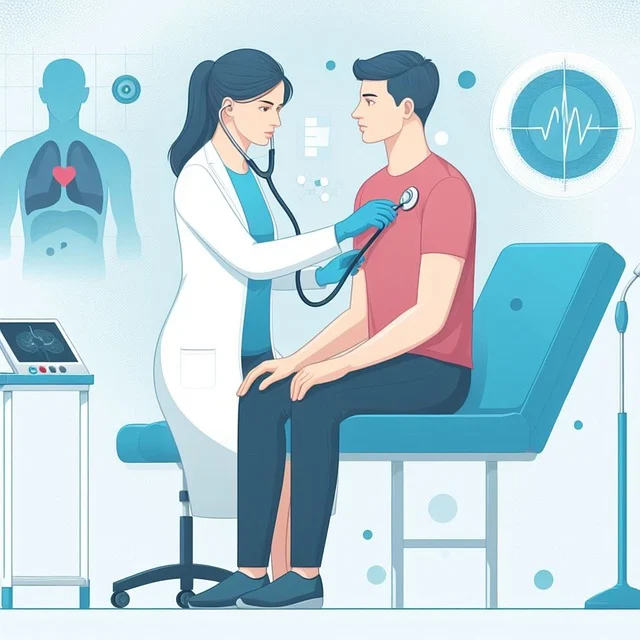
H1: Understanding AI-Powered Healthcare
H2: What is AI in Healthcare?
At its core, AI in healthcare involves the use of machine learning algorithms, natural language processing (NLP), computer vision, and robotics to perform tasks traditionally requiring human intelligence. AI is capable of analyzing medical records, identifying patterns, making predictions, and even recommending treatments—all at speeds that surpass human capabilities. AI-Powered Healthcare
Examples of AI applications in healthcare include:
- Imaging analysis for detecting diseases like cancer or fractures in medical scans.
- Chatbots that assist patients with routine queries or scheduling appointments.
- Predictive analytics that help doctors foresee complications based on a patient’s history.
AI tools like IBM Watson Health and Google’s DeepMind Health are already making waves, analyzing massive datasets to guide medical decisions and optimize care.
H2: The Evolution of Digital Health
The transition from traditional healthcare to digital health began with the adoption of electronic health records (EHRs), telemedicine, and wearable devices. Today, AI has become the next logical step in this evolution. With the ability to process massive amounts of data and learn from it, AI bridges the gap between raw medical information and actionable insights. AI-Powered Healthcare
In 2024, the integration of AI is no longer optional—it’s essential. Hospitals, clinics, and research institutions are leveraging AI to improve diagnostics, streamline operations, and enhance patient engagement. This transformation is not just about technology—it’s about improving the quality and efficiency of care delivery.
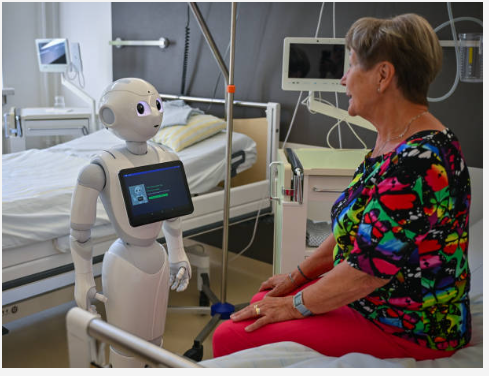
H1: Key Innovations in AI-Powered Healthcare for 2024
H2: AI in Disease Diagnosis
One of the most promising areas of AI-powered healthcare is disease diagnosis. By analyzing medical imaging, AI can detect conditions such as cancer, Alzheimer’s, or cardiovascular diseases earlier than traditional methods. Early detection often means better outcomes, and AI excels in spotting subtle patterns that even seasoned professionals might miss.
H3: How AI Detects Diseases Early
AI algorithms use machine learning to study thousands of medical images, identifying abnormalities with remarkable precision. For instance: AI-Powered Healthcare
- Zebra Medical Vision provides AI tools that scan X-rays, CT scans, and MRIs for early signs of disease.
- PathAI uses machine learning to assist pathologists in identifying cancer cells with unprecedented accuracy.
H2: Personalized Medicine and Treatment
Gone are the days of one-size-fits-all treatments. AI has ushered in an era of personalized medicine, where therapies are tailored to an individual’s unique genetic profile, lifestyle, and medical history. AI analyzes genetic data, compares it with millions of other datasets, and identifies the most effective treatment options.
H3: Role of Genomics in Personalized Medicine
AI-powered platforms like Tempus integrate genomic sequencing with clinical data to offer personalized treatment recommendations. By studying a patient’s DNA, doctors can identify genetic mutations linked to diseases and develop targeted therapies.
H3: Benefits of Personalized Medicine
- Increased efficacy: Treatments are designed specifically for the individual.
- Reduced side effects: Medications are less likely to cause adverse reactions.
- Better outcomes: Precision medicine improves recovery rates and overall patient satisfaction.
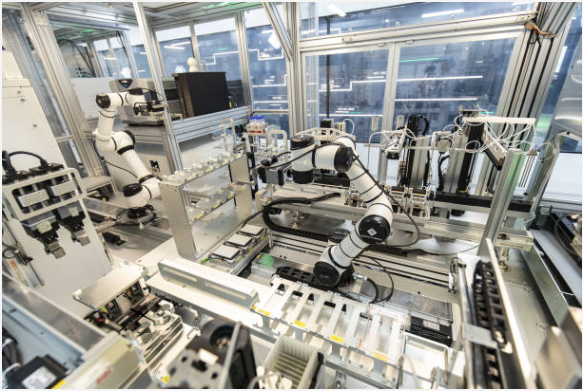
H2: AI-Powered Drug Development
Traditional drug development is a lengthy and expensive process, often taking 10-15 years and billions of dollars to bring a single drug to market. AI is transforming this process by identifying potential drug candidates faster and more cost-effectively. AI-Powered Healthcare
H3: AI in Accelerating Drug Discovery
AI tools like Atomwise and BenevolentAI use machine learning to analyze molecular data, predict drug interactions, and propose new compounds. These systems can test millions of molecules in silico, significantly reducing the need for physical trials.
H3: Cost-Effectiveness and Efficiency
By streamlining research and development, AI minimizes costs, making essential medications more affordable and accessible.
H2: Virtual Health Assistants
Virtual health assistants are transforming patient engagement and care delivery. Powered by AI, these assistants can provide round-the-clock support, answer patient queries, schedule appointments, and even remind patients to take their medications. AI-Powered Healthcare
H3: Examples of AI-Driven Virtual Assistants
- Ada Health: Offers personalized symptom assessments based on AI algorithms.
- Babylon Health: Combines AI with telehealth services to deliver remote consultations.
Virtual assistants not only improve patient satisfaction but also reduce the workload on healthcare professionals.
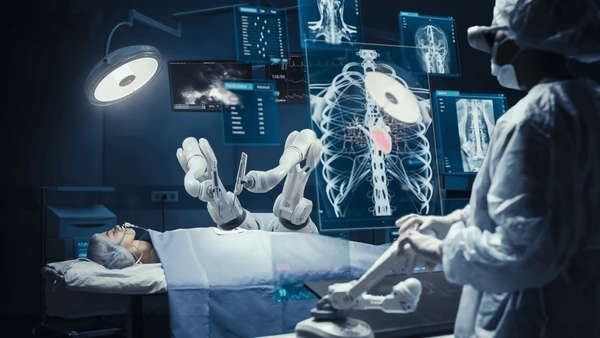
H1: Transforming Patient Care Through AI
H2: AI in Remote Monitoring and Telehealth
With the rise of telemedicine, AI has become a vital component of remote patient care. Wearable devices equipped with AI algorithms can monitor vital signs, detect irregularities, and alert healthcare providers in real-time. This ensures that patients receive timely intervention, even from the comfort of their homes. AI-Powered Healthcare
H3: Examples of AI in Remote Monitoring
- Apple Watch and Fitbit use AI to monitor heart rates and detect arrhythmias.
- Remote monitoring platforms like Biofourmis analyze patient data to predict potential complications.
H2: Role of AI in Mental Health Care
Mental health is a critical aspect of healthcare, and AI is playing a pivotal role in addressing its challenges. AI-driven apps and platforms provide accessible, stigma-free mental health support.
H3: AI-Powered Mental Health Tools
- Woebot and Wysa: Offer AI-based cognitive-behavioral therapy (CBT) to help users manage stress, anxiety, and depression.
- Talkspace: Combines AI with human therapists to provide personalized care.
These tools not only improve access to mental health resources but also reduce the stigma associated with seeking help.
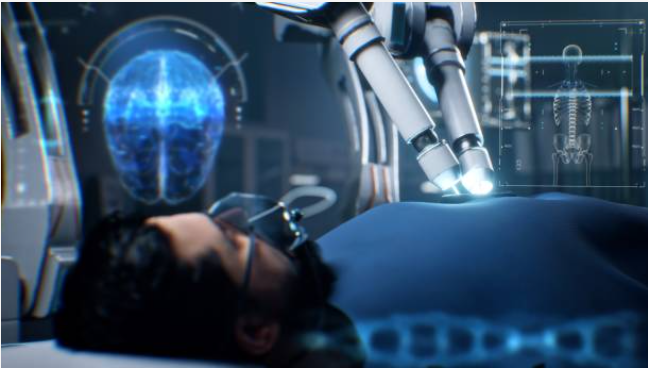
H2: Reducing Healthcare Disparities with AI
Healthcare disparities—whether due to geography, income, or infrastructure—remain a global challenge. AI has the potential to level the playing field by making advanced diagnostics and treatments accessible to underserved communities.
H3: AI in Mobile Health (mHealth)
Mobile apps equipped with AI can deliver diagnostic services and health education to rural and remote areas. For instance:
- AI-powered diagnostic tools in mobile clinics bring advanced care to underserved populations.
- Chatbots translate medical advice into multiple languages, ensuring inclusivity.
H1: Ethical and Regulatory Challenges
H2: Privacy Concerns and Data Security
AI relies on massive amounts of patient data, which raises concerns about privacy and security. Ensuring the safety of sensitive information is paramount.
H3: Strategies for Ensuring Data Security
- Encryption and anonymization of patient data.
- Adhering to regulations like HIPAA and GDPR to safeguard patient information.
- Investing in cybersecurity measures to prevent breaches.
H2: Bias in AI Algorithms
AI systems are only as unbiased as the data they are trained on. If datasets lack diversity, AI algorithms may produce skewed results, exacerbating existing disparities in healthcare.
H3: Addressing Bias in AI
- Using diverse datasets to train algorithms.
- Regularly auditing AI systems for fairness.
- Involving multidisciplinary teams to reduce blind spots.
H2: Regulatory Frameworks for AI in Healthcare
AI innovation must be balanced with robust regulations to ensure patient safety. Governments and healthcare organizations are working to establish frameworks that govern the use of AI in medicine.
H3: The Role of Global Standards
Regulatory bodies like the FDA and EMA are developing guidelines to evaluate AI tools for safety and efficacy. These frameworks must adapt to the rapid pace of AI advancements.
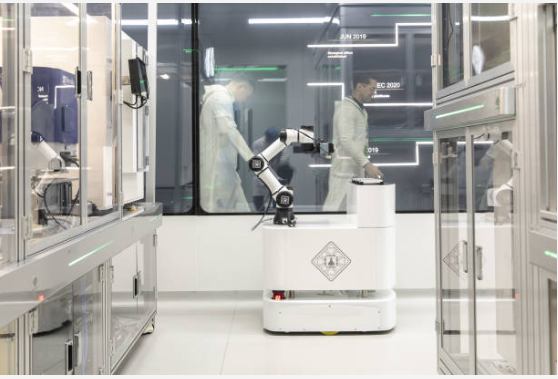
H1: The Future of AI-Powered Healthcare
H2: Trends to Watch in 2024
Several trends are set to dominate AI-powered healthcare in 2024:
- Wearables with AI Features: Devices like smartwatches are becoming more sophisticated, offering features like continuous glucose monitoring and blood pressure tracking.
- AI in Robotics: Robotic systems powered by AI are revolutionizing surgeries, offering precision and reducing recovery times.
H2: Collaboration Between AI and Healthcare Professionals
AI is a tool, not a replacement for human expertise. The future lies in collaboration, where AI enhances decision-making, and healthcare professionals provide the critical human touch.
H3: Benefits of Human-AI Collaboration
- Faster and more accurate diagnoses.
- Better treatment planning and execution.
- Improved patient outcomes through shared decision-making.
Conclusion
AI-powered healthcare is redefining what’s possible in medicine. From early diagnosis and personalized treatments to efficient drug development and improved patient care, AI is making healthcare smarter and more accessible. While challenges like privacy, bias, and regulation remain, the potential benefits far outweigh the hurdles. As we move into 2024 and beyond, the synergy between AI and human expertise promises a future where healthcare is not only more effective but also more inclusive and patient-centered.
FAQs
1. What are the benefits of AI in healthcare?
AI improves diagnostic accuracy, personalizes treatments, accelerates drug discovery, and enhances patient care.
2. How does AI impact disease diagnosis?
AI identifies patterns in medical data, allowing for early detection and precise diagnosis of diseases.
3. What is the role of AI in drug development?
AI accelerates the drug discovery process by analyzing molecular data and predicting interactions.
4. Are there ethical concerns in AI healthcare?
Yes, issues like data privacy, algorithm bias, and the need for transparent regulations are significant challenges.
5. What’s the future of AI-powered healthcare?
The future includes advancements in wearables, robotics, and increased collaboration between AI systems and healthcare professionals.

2 thoughts on “AI-Powered Healthcare: What’s New in Digital Health for 2024”